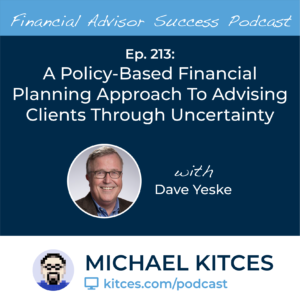Enjoy the current installment of "Weekend Reading For Financial Planners" – this week's edition kicks off with a helpful explainer of what, exactly, is going on with GameStop and a few other high-flying stocks that have captured industry headlines and media headlines this week with a combination of "short squeeze" and "gamma squeeze" that, driven by a stampede of Reddit users, may ultimately become known as the first "crowd squeeze" (though in the end, it doesn't appear to signal any kind of breakdown in markets themselves, but is simply a modern example of a type of investor squeeze that has been known and observed in markets for decades).
Also in the news this week are a number of other notable industry headlines, including:
- Service complaints are up at both Schwab and TD Ameritrade, not as a result of the merger integration itself (which has yet to even substantively begin), but a combination of post-merger talent drain from TD Ameritrade and coronavirus remote-work challenges for Schwab, amidst what is still an ongoing bull market in the creation and growth of the RIA channel
- Fiduciary advocates call for SEC Commissioner nominee Gary Gensler to consider renaming Regulation "Best Interest" to "New Suitability" instead
From there, we have several articles around marketing communications:
- Why closing prospective clients is all about identifying the triggering events that also cause them to take action (and not just providing them information about the advisor's services and trying to convince them of the value)
- How one-sentence emails can be effective for moving a prospect to action (or at least clarifying what it will take to do so)
- Why it may help to think about marketing strategies in terms of the "minimum effective dose" it takes to actually make an impact
We've also included a number of practice management articles with a focus on hiring in particular:
- Why it's not a good idea to rely on resumes and instead focus on asking for real work samples
- The problems with relying on job interviews and why at the least interviews should be based on a series of standardized and structured questions
- How the best hiring practices don't rely on using creative or unique interview questions and instead are simply based on leveraging a repeatable process that makes it easiest to really compare job candidates on their actual job skills and whether they possess the required job traits to be successful in the role
We wrap up with three final articles, all around the theme of work-from-home versus office environments, as the COVID-19 vaccine continues to roll out:
- Why coffeehouses are known for being a good creative space despite (and in fact, because of) their distractions and external stimuli
- How the future of office space is likely to be a blend of "core" in-person office hours for team meetings and collaboration, and work-from-home space for focus work
- The rise of video-game-based work environments where co-workers interact with avatars in a game environment to better promote interpersonal interaction!
Enjoy the 'light' reading!







 Welcome back to the 213th episode of the Financial Advisor Success Podcast!
Welcome back to the 213th episode of the Financial Advisor Success Podcast!

